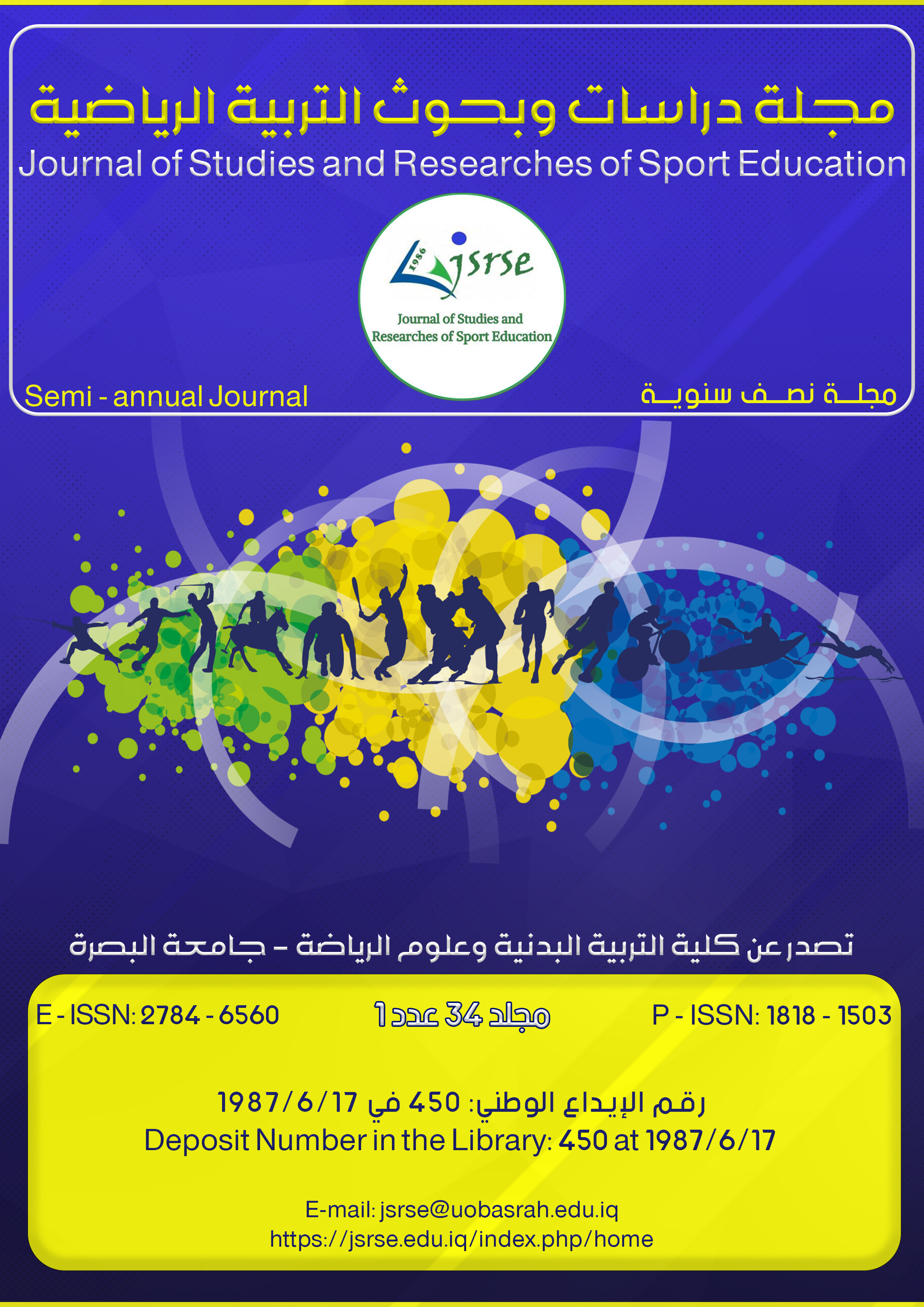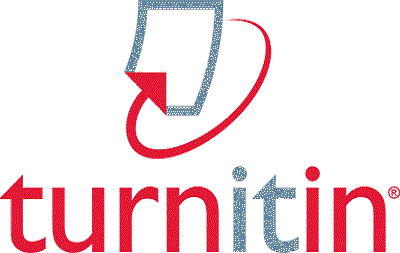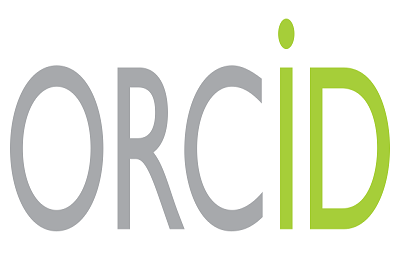The expected roles of students’ motivational beliefs in improving positive emotions during sports lessons in Preparatory schools affiliated with the Kirkuk Education Directorate
Main Article Content
Abstract
The research aimed to: - Determine the level of motivational beliefs among middle school students affiliated with the Kirkuk Education Directorate from their personal point of view. - Determine the level of positive emotions for middle school students affiliated with the Kirkuk Education Directorate from their personal point of view. - Determine the expected roles of students’ motivational beliefs in improving their positive feelings During a physical education lesson.
The researcher adopted the descriptive approach using both survey and correlational methods. The researcher identified middle school students affiliated with the Kirkuk Education Directorate within (31) middle schools. The researcher chose the main research sample from the research community, with a number of (375) students, and divided them into three sub-samples (exploratory, preparatory, And the final application). To collect data, the researcher prepared two measurement tools. The first measures the students’ motivational beliefs and has (12) items, while the second measures positive feelings during the sports lesson and has (13) items. They are answered according to five answer alternatives. They are (applies a lot, applies, applies somewhat, does not apply, does not apply very much), and after extracting the results and through the use of statistical methods, the researcher concluded: - The students of middle schools affiliated with the Kirkuk Education Directorate have a high level of motivational beliefs from their point of view. - They have Middle school students affiliated with the Kirkuk Education Directorate had a high level of positive emotions during the physical education lesson from their point of view.
Article Details

This work is licensed under a Creative Commons Attribution-NonCommercial 4.0 International License.
References
Aldewan, L. H., Abdul-Sahib, H. M., & al-Mayahi, S. J. K. (2013). Platform impact media super overlap (Alhiebermedia) to learn the effectiveness of the long jump for the Deaf Mute. Journal of Studies and Researches of Sport Education, 36, 27–41. https://www.iasj.net/iasj/article/94541
Burić, I., & Kim, L. E. (2020). Teacher self-efficacy, instructional quality, and student motivational beliefs: An analysis using multilevel structural equation modeling. Learning and Instruction, 66(January 2019), 101302. https://doi.org/10.1016/j.learninstruc.2019.101302
Cwik, S., & Singh, C. (2022). Longitudinal analysis of women and men’s motivational beliefs in a two-semester introductory physics course sequence for students on the bioscience track. Physical Review Physics Education Research, 18(2), 20111. https://doi.org/10.1103/PhysRevPhysEducRes.18.020111
Hameed; Ikhlas, & Kadhum; Sahira. (2022). Psychological Prosperity of University Students Practicing and Non-Practicing Sports. Modern Sport, 21(1), 0024. https://doi.org/10.54702/msj.2022.21.1.0024
Kadhim, M. A. , Aldewan, L. H., & Azzal, Y. H. (2020). The effect of teaching according to the Realistic Learning Model in teaching the technical performance of freestyle swimming for first grade student. Journal of Studies and Researches of Sport Education, 62, 330–343. https://www.iasj.net/iasj/article/205196
Kaur, S. (2023). Motivational Beliefs and Learning Strategies as Predictors of Academic Achievement of Prospective Teachers. The International Journal of Indian Psychology, Vol.11(Issue.4), 2383–2391. https://doi.org/10.25215/1102.238
Kohnke, L., & Foung, D. (2023). Promoting Positive Emotions during the Emergency Remote Teaching of English for Academic Purposes: The Unexpected Role of the Constructionist Approach. Education Sciences, 13(8), 765. https://doi.org/10.3390/educsci13080765
Li, L., Gow, A. D. I., & Zhou, J. (2020). The Role of Positive Emotions in Education: A Neuroscience Perspective. Mind, Brain, and Education, 14(3), 220–234. https://doi.org/10.1111/mbe.12244
Li, Y., & Singh, C. (2022). Inclusive learning environments can improve student learning and motivational beliefs. Physical Review Physics Education Research, 18(2), 20147. https://doi.org/10.1103/PhysRevPhysEducRes.18.020147
Lilian, A. (2022). Motivational beliefs, an important contrivance in elevating digital literacy among university students. Heliyon, 8(12), e11913. https://doi.org/10.1016/j.heliyon.2022.e11913
Mashkoor; Nahida, & Mohamed; Lamaa. (2017). Study the level of social interaction and its relationship to aggressive behavior on the field for some youth teams. Scientific Journal of Sports Sciences and Arts, 016(016), 59–67. https://doi.org/10.21608/ijssaa.2017.69736
Oudah, M. J. , Aldewan, L. H., & Hchaya, H. M. (2022). Building a Scale of Systems Thinking in Tennis. . Journal of Studies and Researches of Sport Education, 32(2), 18–27. https://doi.org/https://doi.org/10.55998/jsrse.v32i2.341
Paakkanen, M. A., Martela, F., & Pessi, A. B. (2021). Responding to Positive Emotions at Work – The Four Steps and Potential Benefits of a Validating Response to Coworkers’ Positive Experiences. Frontiers in Psychology, 12. https://doi.org/10.3389/fpsyg.2021.668160
Pinto-Guillergua, V., Gómez-Carbonel, P. E., Montoya-Cantoral, E., Mamani-Calcina, J., & Villalba-Condori, K. O. (2023). Self-motivational Beliefs that Enhance Self- regulation of Students in Virtual Courses. CEUR Workshop Proceedings, 3353, 69–74.
Saleem, M. S., Isha, A. S. N., Awan, M. I., Yusop, Y. B., & Naji, G. M. A. (2022). Fostering Academic Engagement in Post-graduate Students: Assessing the Role of Positive Emotions, Positive Psychology, and Stress. Frontiers in Psychology, 13(August). https://doi.org/10.3389/fpsyg.2022.920395
Schweder, S. (2020). Mastery goals, positive emotions and learning behavior in self-directed vs. teacher-directed learning. European Journal of Psychology of Education, 35(1), 205–223. https://doi.org/10.1007/s10212-019-00421-z
Slåtten, T., Lien, G., Evenstad, S. B. N., & Onshus, T. (2021). Supportive study climate and academic performance among university students: the role of psychological capital, positive emotions and study engagement. International Journal of Quality and Service Sciences, 13(4), 585–600. https://doi.org/10.1108/IJQSS-03-2020-0045
Suleiman, S. M. (2010). Data collection tools in psychological and educational research: Vol. First edition (The world of books, Ed.).
Tareen, H., Haand, M. T., Muhammadi, A., & Zhang, B. (2023). Self-regulated learning and motivational beliefs: Findings from a survey of EFL undergraduates in Afghanistan. Issues in Educational Research, 33(2), 781–797.
Volet, S., Seghezzi, C., & Ritchie, S. (2019). Positive emotions in student-led collaborative science activities: relating types and sources of emotions to engagement in learning. Studies in Higher Education, 44(10), 1734–1746. https://doi.org/10.1080/03075079.2019.1665314
Wall, T., Russell, J., & Moore, N. (2017). Positive emotion in workplace impact. Journal of Work-Applied Management, 9(2), 129–146. https://doi.org/10.1108/JWAM-07-2017-0017
Wang, J., Zhou, C., Song, Q., & Xu, F. (2023). The relationship between teacher support and positive emotions in Chinese higher vocational students: multiple mediating effects of procrastination behavior and interpersonal assistance. Frontiers in Psychology, 14(June), 1–13. https://doi.org/10.3389/fpsyg.2023.1201864





 IASJ
IASJ CC-BY-4.0
CC-BY-4.0 turnitin
turnitin ISSN
ISSN DOAJ
DOAJ Crossref
Crossref GoogleScholar
GoogleScholar Orcid
Orcid